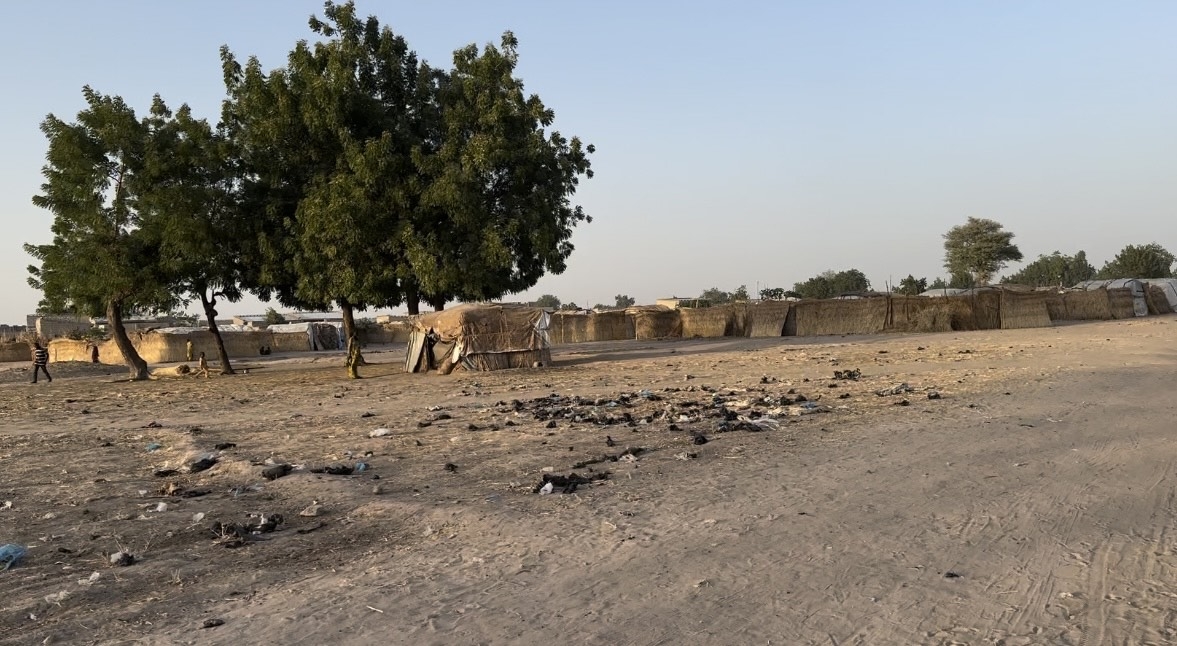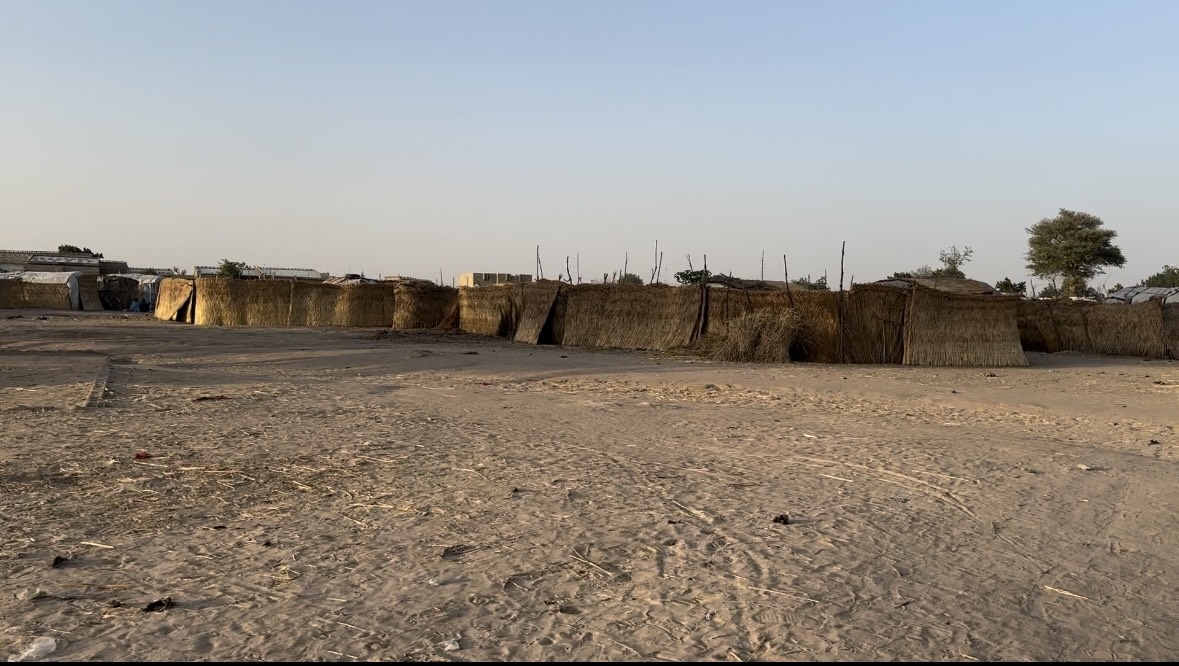The Burden of Bearing Witness
Last month, I walked away from an important story that needed to be told. I was in the field in Maiduguri, northeastern Nigeria, where the over-a-decade-old Boko Haram insurgency has caused immeasurable devastation to lives and properties. I was walking out of a camp for internally displaced persons on the outskirts of the city, alongside a prominent member of the camp, when I came upon a woman with crutches.
I weighed the information he had just given me against the recent strain of my passion for my work, and I made the decision to walk away from it. I did not think my heart and spirit would be able to take the full story without breaking. That night, I struggled to sleep.
My companion pointed to her and said to me, “That lady, once there was a military officer who came every day to rape her because he knew she could not run away because of her disability. We had to intervene before it stopped.”
It is possible that I have come across more devastating and heartless stories than this since I started conflict reporting years ago; my memory fails me now, perhaps also because I am actively trying not to think about it. But that tip hit me with a force that knocked me right out of my mind. He wanted me to tell the story; perhaps the reportage might bring the woman some measure of justice, and if not, her story would still be an important one to document. He was right. Journalism is the only medium through which people like that woman could ever speak. I weighed the information he had just given me against the recent strain of my passion for my work, and I made the decision to walk away from it. I did not think my heart and spirit would be able to take the full story without breaking. That night, I struggled to sleep.
Reevaluating the Role of Conflict Reporting
“If we don’t tell our stories, others will, and they will tell it wrong.”
This happened at a time when I had begun to ask myself serious and uncomfortable questions about the work that I was doing. What is the value of conflict reporting? What is the value of this reportage, especially in the face of the enormousness of conflict and war? There are over 350,000 lives that have been lost to the Boko Haram crisis. Over 3 million more people in Nigeria have been displaced, too. What was I doing thinking I could make a difference by telling the stories of a few of those people? What value did it ever bring? What did it matter in the grand scheme of things? And so when I saw and heard about that crippled woman, I walked away.
I keep pitching the sheer enormity of this insurgency against the very, very little work we’re doing, and I feel there is little to no value at all to it in the face of that comparison
It isn’t lost on me that these questions can only come out of a disillusioned and fatigued mind. I have always said that journalism is important, even if the only thing it achieves is to serve as a tool for documenting history. Suppose your work pops up in a Google search when, years from now, an academic or even a curious person is researching how people survived in these times, then your work as a journalist is done. I have always said this. But lately, it doesn’t feel enough.
I spoke to a dear friend and coworker about my feelings of disillusionment. “I keep pitching the sheer enormity of this insurgency against the very, very little work we’re doing, and I feel there is little to no value at all to it in the face of that comparison,” I told him.
“The thing is... Our job isn't to fight the insurgency, H,” he said to me. “It's never been. It's to document it. And if in that process, some or many people suffer less (as often does happen, even if we don't always see the full picture), then we count ourselves lucky to have contributed to that outcome.”
His words were wise and true. They are also words I have said to myself many times in the past. It reminded me of the period I made the decision to do conflict reporting full-time. Before then, I had mostly been a poet. I was fresh out of law school and back in my parents’ home in Niger State, North-central Nigeria. And in the news, various terror attacks by the Boko Haram terror group were being reported in the state. It was terrifying. The state capital, where I lived with my family, was swelling with people who had been displaced from rural villages. I started off volunteering with a humanitarian organisation to provide and distribute aid to displaced people. Then, I started to document the things I was seeing. It was born out of the fear that if we did not tell our stories, no one else would. This thought was reinforced when I later met my now employer, who presented me with an even more scary but probable thought: “If we don’t tell our stories, others will, and they will tell it wrong.”
I thought obsessively, like most human beings in the world have been doing, about the humanitarian crisis in Gaza; how thoroughly it is being documented by its journalists and even ordinary citizens, how evidence of the atrocity has been diligently documented on social media, in videos, in reports. And how so little that has meant for accountability.
When I returned to Abuja three weeks ago, those depressing questions weighed me down so heavily and so frequently that I struggled to find light. I sat at my desk for hours, clicking away, opening and closing documents that needed to be edited, and being unproductive. I thought obsessively, like most human beings in the world have been doing, about the humanitarian crisis in Gaza; how thoroughly it is being documented by its journalists and even ordinary citizens, how evidence of the atrocity has been diligently documented on social media, in videos, in reports. And how so little that has meant for accountability. In fact, over 110 journalists have been killed by the crisis.
As things continued to get worse, I googled ‘the importance of conflict reporting’ and found nothing of note. The results that popped up ranged from ethics of conflict reporting and how to do conflict reporting. Never why.
Eventually, I had to take a few days off work as I found myself being swallowed by the bleak realities.

The "Privilege" of Documenting Tragedy
As I worked out in the gym two weeks after that Maiduguri trip, precisely on Feb. 24th, I received a message from someone reminding me that it was exactly ten years since the tragic Buni Yadi massacre. The massacre, which took place in 2014 by terrorists belonging to Boko Haram, remains one of the most tragic and senseless acts of war since the group broke out in 2009. They threw balls of fire under the beds as teenage schoolboys slept. They then positioned themselves at doors and windows and shot those who tried to escape. Those who made it into the school compound were slaughtered. Some accounts say up to 59 schoolboys died. This is possible, but I could only trace and verify the names of 29 boys.
late 2022, I started the long task of tracking down the families of the boys who died, as well as the boys who survived. I went from Potiskum, to Damagum, to Damaturu, to Bauchi to Maiduguri in search of these people over the course of two months. The result was a series of reports attempting to document the tragedy from multiple and holistic angles.
As I read that message about the anniversary, I remembered Mustapha, fondly called Musty by his mother, who was killed by a bullet to the thigh. I remembered Adamu, who was burned to death and buried with neither of his parents present. I remembered Mohammed, who survived a bullet to the neck and who, to this day, has not recovered from the trauma.
Besides the Wikipedia entry about the massacre, I realised that my reportage on the tragedy years after it occurred remains the only extensive source of information about what happened, how it happened, and what the aftermath was. I know because during my research phase before I went to the field, I tried to lay my hands on any reports about it. Besides very brief and often inaccurate news reports, I found nothing. I also know because all the people I spoke to on the field said they were speaking to the media for the first time.
I googled ‘Buni Yadi Massacre’, and my reports poured out right after the Wikipedia entry. The realisation that I had been privileged to document those stories hit me in a way that nearly moved me to tears. Because it is a privilege. I got off the treadmill and sat somewhere. As I scrolled through the reports again, the word privilege kept echoing over and over in my mind. The lack of tangible impact does not equal unimportance. To be able to help thousands of people remember, to articulate the lives and circumstances of victims of war who have no other means of being remembered, is a privilege.
I know from current experience how possible it is to look away, to choose to walk away in an attempt to care for oneself. I also knew how difficult and arduous the task was to unearth victims of something as devastating as the Buni Yadi massacre and to sit with them and have them trust me with their grief.

The Enduring Importance of Conflict Journalism
My work, the work of all conflict reporters, is not only of history but of devotion. It is as important as air is to the lungs. Because a society that cannot remember its tragedies, that does not have a reliable way of doing so, is not one worth living in. Because of conflict reporting, there will never be a shortage of information and resources on what’s going on in Gaza, or how the Boko Haram insurgency in Africa has destroyed lives, familial bonds, and property.
Conflict reporting makes it impossible for societies to feign ignorance of the violence done to them.
The views expressed in this article are the author’s own and do not necessarily reflect Al Jazeera Journalism Review’s editorial stance.








































